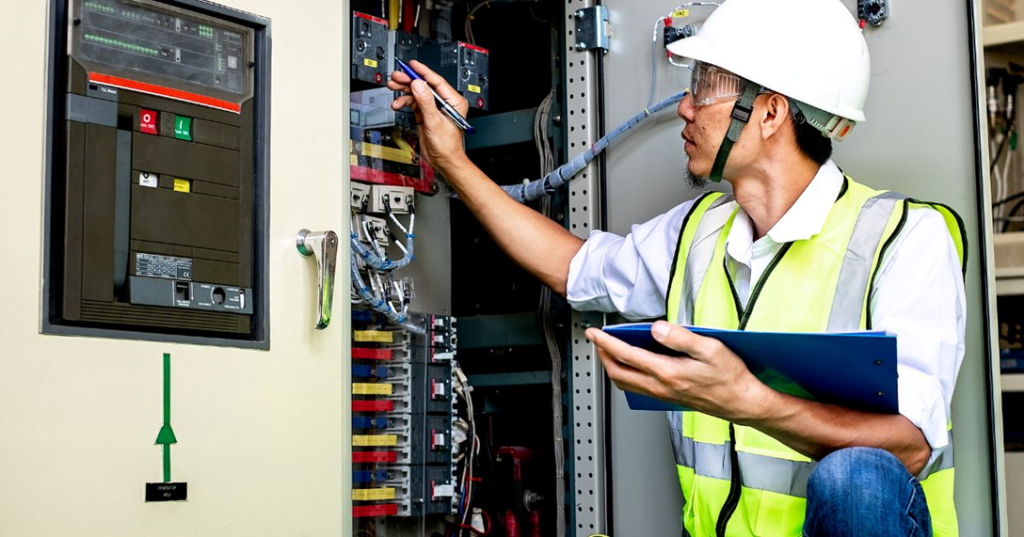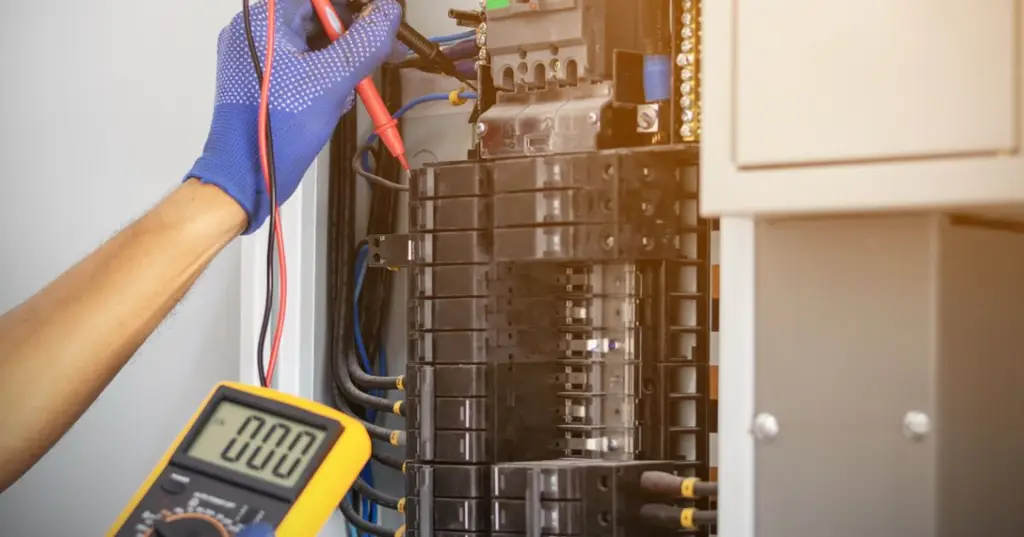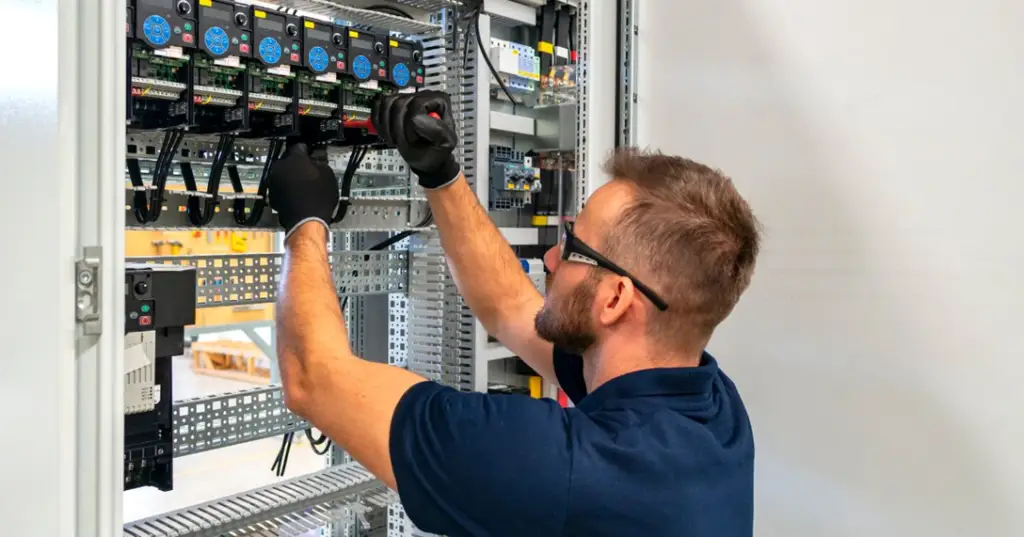Electrical Contractor vs Electrician: Which Is Best For You?

Discover the key differences between an electrical contractor vs electrician and learn who to hire for safe, reliable, and code-compliant electrical work.
Electrical problems in your home or business can range from simple inconveniences to significant, life-threatening hazards.
In situations where lights are flickering, an outlet is not working, or the system needs to be upgraded, which option is more advisable: hiring an electrician or an electrical contractor?
The National Electrical Contractors Association defines the roles of an electrical contractor and an electrician, despite their differences.
While an electrician can come to your home to do the work, an electrical contractor may be a business person or company that deals with building work, such as designing, installing, and maintaining electrical systems.
The following guide will help you in choosing between hiring an electrical contractor vs electrician.
Difference Between an Electrical Contractor vs Electrician
Let’s start with the basics. Both electricians and electrical contractors hold licenses to carry out electrical work, but their scope of services, operating procedures, and scale of operation vary.
A licensed professional who specializes in electrical installation, maintenance, and repair for homes, businesses, or institutions is known as an electrician.
This profession includes all electrical work within a building’s perimeter. Individuals may work for contractors, while others may contract through companies.
Electricians are usually best suited for small to medium-sized jobs, especially within single-family homes or apartments.
- Lower hourly rates are standard among them.
- They are perfect for urgent situations or one-time services.
- Their scheduling flexibility allows for same-day repairs.
- It is possible that their expertise may be limited to residential or commercial tasks.
In the residential, commercial, and other construction sectors, an electrical contractor has a more extensive scope.
The design and implementation of building systems involve direct involvement.
Rather than dealing with the manual labor of a project, they’re involved in selecting products and systems as partners in the building process, working alongside architects, property owners, or consultants.
They may use sophisticated computer design systems, such as building information modeling.
They hold a license from the California Contractor Licensing Board and are frequently in charge of completing an entire project.
- They offer multiple electricians available for big jobs.
- Commercial, industrial, or high-voltage applications are more suitable for their devices.
- They are to manage permits, inspections, and compliance.
- 24/7 availability is possible for them during emergencies.
When is it Appropriate to Contact an Electrician?
A solo electrician is usually the best choice when your electrical problem is small or local, and you don’t require tools or human resources to solve it.
Under these ordinary circumstances, it is wise to employ an individual electrician.
Minor Repairs or Diagnostics.
Electrical technicians are trained to diagnose and quickly solve common electrical problems in homes, such as broken outlets or flickering lights.
Their prices are often lower than those of a larger company, and they can complete minor projects in one visit.
Fixture and Appliance Installation.
Do we require a kitchen appliance, dimmer switch, wall sconce, or ceiling fan?
The jobs are easily managed by a residential electrician who is skilled in working in homes that require meticulous attention and accuracy.
Circuit Breaker Problems.
An electrician can inspect your electrical load, identify issues, and replace defective components if your breakers are not working or your panel needs minor upgrades.
They possess the ability to install surge protectors or rewire individual circuits.
Pre-Home Sale Electrical Repairs.
An electrician can quickly fix minor electrical problems like ungrounded outlets, exposed wiring, or outdated fixtures, and file paperwork for your records when you’re selling the home.
When is it Appropriate to Contact an Electrical Contractor?

A licensed electrical contractor is the safer and more efficient solution for larger, multi-phase, or high-stakes projects.
They have teams that can manage significant workloads, collaborate with other trade groups, and oversee projects from start to finish.
For exceptional results, opt for a full-service electrical contractor.
Whole-Home Rewiring.
Complete rewiring is often required for older homes, particularly those with aluminum wiring or outdated fuse boxes, to meet modern electrical codes and capacity requirements.
Because of the need for rigorous code compliance and laborious tasks, this work is well-suited for a licensed organization with many staff members. It requires minimal technical expertise.
Home Renovations or Additions.
Your panel will probably need updating, new circuits installed, and outlets moved if you’re remodeling your kitchen or completing a basement.
Contractors, plumbers, and HVAC professionals can all work together to ensure the job is completed on time by electrical companies.
Commercial or Industrial Projects.
The planning and scalability of businesses, schools, warehouse sites, and apartment complexes require more than just independent electricians.
By collaborating with architects, engineers, and building inspectors, they can handle documentation, permitting, and system design for commercial work.
Whether it’s an EV charger or generator, or the installation of solar panels.
Putting in electric vehicle charging points, backup generators, or solar panels isn’t just plug and play.
Such projects frequently incorporate load calculations, panel upgrades, and inspections.
These systems can be installed and inspected by electrical companies, which are typically both experienced and insured.
Ongoing Maintenance and 24/7 Support.
It is common for property managers, HOAs, and commercial tenants to contract with electrical companies as a means of ongoing support.
Independent electricians may not provide the same level of assurance in terms of routine inspections, emergency service availability, and response times as these agreements.
What are the Risks of Obtaining Permits, Approvals, or Compliance?
To meet safety standards, an electrical contractor or licensed electrician must possess the ability to get permits and comply with codes.
Permit applications and inspection coordination are not part of the scope of every independent contractor, especially if they are hired through an informal agreement.
Abandon the offer to perform electrical work without a permit or under the table to save money by walking away.
Improper installations can:
- Void your home insurance.
- Cause electrical fires.
- Result in unsuccessful home inspections.
- It is more expensive to repair later on.

Conclusion.
It’s vital to hire the right expert for a job that can be done on schedule and at such hefty prices.
Get a licensed electrician for small domestic tasks, speedy repairs, light fittings, and minor testing.
Employ an electrical contractor for intricate ventures, substantial renovations, and upgrades in the commercial sector, as well as any other tasks that require the help of multiple electricians or inspections.
In both instances, ensure that your provider has a license, insurance, and a guarantee of quality. In terms of electricity, the risk is never worth it.




